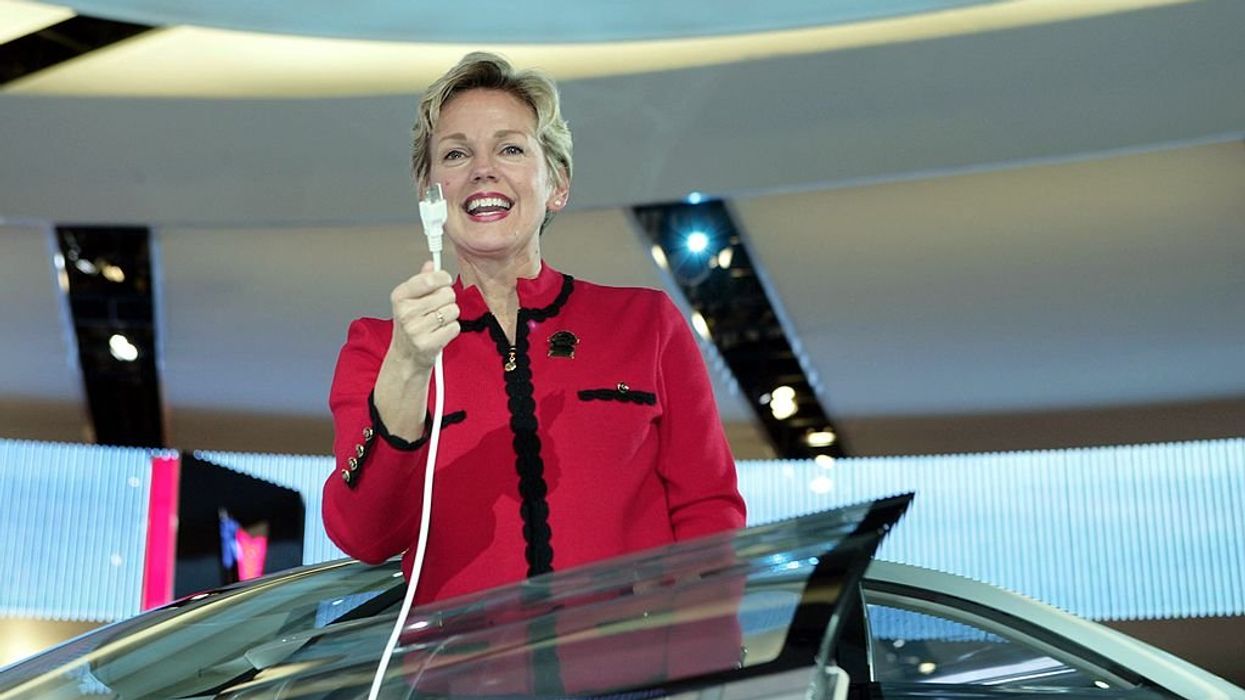Energy Secretary Jennifer Granholm learned recently the inherent disadvantages of electric vehicles.
Granholm set off on a multi-state road trip — from Charlotte to Memphis — this summer to promote the Biden administration's commitment to green energy and EVs. On Sunday, NPR reporter Camila Domonoske, who rode along with Granholm, revealed the moment that cops were called on Granholm's caravan of EVs.
According to Domonoske, Granholm's advance team planned to recharge the EVs at a fast-charge station outside Augusta, Georgia. But there was a problem. One of the station's four chargers was broken, and two were occupied.
The solution? Granholm's team parked a gas-powered vehicle next to the operational chargers "to reserve" one for Granholm. But that "did not go down well," Domonoske explained — and the optics of the situation were the least of Granholm's problems.
Domonoske reported:
In fact, a family that was boxed out — on a sweltering day, with a baby in the vehicle — was so upset they decided to get the authorities involved: They called the police.
The sheriff's office couldn't do anything. It's not illegal for a non-EV to claim a charging spot in Georgia. Energy Department staff scrambled to smooth over the situation, including sending other vehicles to slower chargers, until both the frustrated family and the secretary had room to charge.
The incident perfectly demonstrates the problems and limitations with EVs. In the words of Domonoske, they "have a road trip problem."
The problems, Domonoske said, are not limited to charger availability, reliability, and speed. EV road trips also require meticulous planning, she explained, because stops must be designed around chargers.
Charger problems aside, EVs are also expensive. According to Kelley Blue Book, a new EV is currently selling for about $5,000 more on average than conventional gas-powered vehicles. That is down nearly $8,000 since January.
A backlog of unsold EVs is responsible for the decrease, experts told KBB, so it is likely artificial, and the prices will rise again if consumer demand matches the supply again.
Like Blaze News? Bypass the censors, sign up for our newsletters, and get stories like this direct to your inbox. Sign up here!




